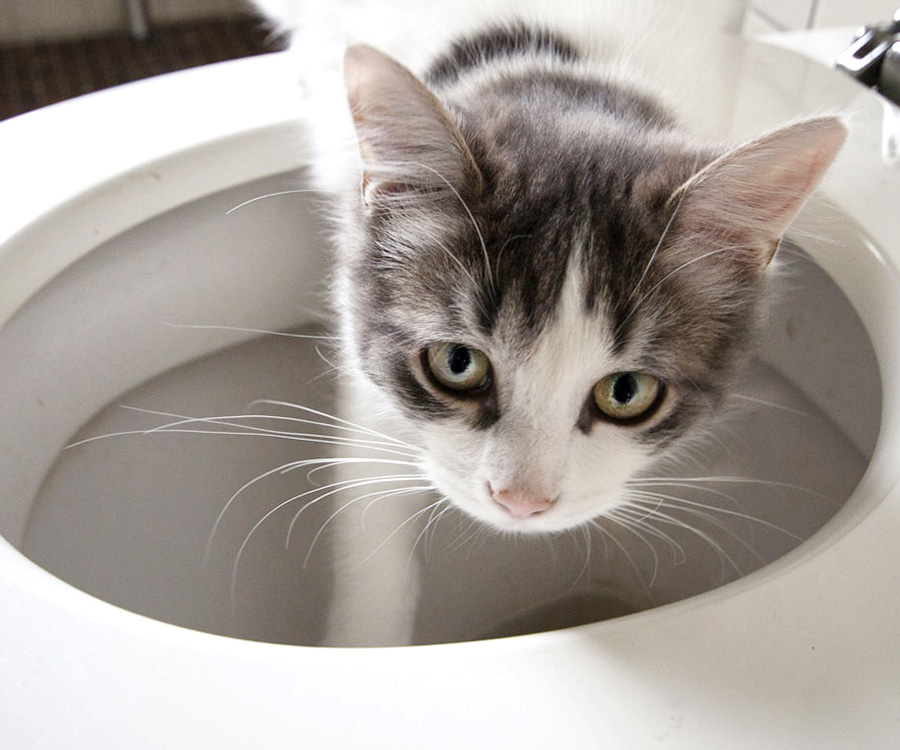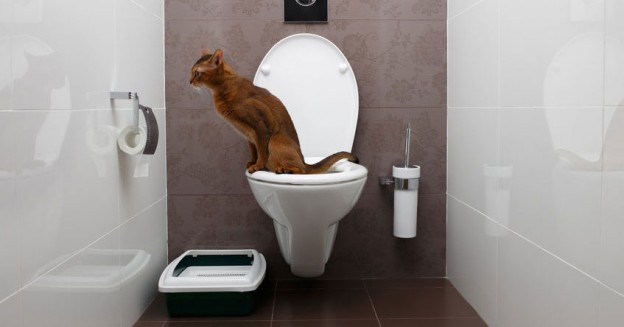Why You Should Avoid Flush Cat Poop Down Your Toilet - Crucial Information
Why You Should Avoid Flush Cat Poop Down Your Toilet - Crucial Information
Blog Article
Almost everyone has got their private assumption in relation to Don’t flush cat feces down the toilet.

Intro
As feline proprietors, it's vital to bear in mind exactly how we get rid of our feline buddies' waste. While it might seem convenient to purge feline poop down the commode, this method can have harmful effects for both the atmosphere and human health and wellness.
Alternatives to Flushing
Fortunately, there are more secure and much more liable methods to deal with pet cat poop. Consider the adhering to options:
1. Scoop and Dispose in Trash
One of the most typical approach of disposing of feline poop is to scoop it right into a naturally degradable bag and toss it in the trash. Make certain to use a committed litter inside story and deal with the waste without delay.
2. Use Biodegradable Litter
Opt for naturally degradable pet cat trash made from products such as corn or wheat. These litters are environmentally friendly and can be securely gotten rid of in the garbage.
3. Bury in the Yard
If you have a lawn, take into consideration burying pet cat waste in a designated area far from vegetable gardens and water resources. Make certain to dig deep enough to avoid contamination of groundwater.
4. Mount a Pet Waste Disposal System
Invest in a family pet garbage disposal system particularly made for cat waste. These systems utilize enzymes to break down the waste, lowering odor and environmental effect.
Wellness Risks
Along with environmental issues, purging pet cat waste can also position health and wellness threats to human beings. Cat feces may consist of Toxoplasma gondii, a bloodsucker that can create toxoplasmosis-- a possibly severe disease, especially for expectant females and individuals with weakened immune systems.
Environmental Impact
Flushing feline poop introduces dangerous virus and bloodsuckers right into the water supply, positioning a considerable danger to marine environments. These pollutants can negatively influence aquatic life and compromise water quality.
Verdict
Accountable animal possession extends past supplying food and shelter-- it additionally includes proper waste monitoring. By refraining from flushing feline poop down the toilet and going with alternate disposal methods, we can reduce our ecological footprint and protect human wellness.
Why Can’t I Flush Cat Poop?
It Spreads a Parasite
Cats are frequently infected with a parasite called toxoplasma gondii. The parasite causes an infection called toxoplasmosis. It is usually harmless to cats. The parasite only uses cat poop as a host for its eggs. Otherwise, the cat’s immune system usually keeps the infection at low enough levels to maintain its own health. But it does not stop the develop of eggs. These eggs are tiny and surprisingly tough. They may survive for a year before they begin to grow. But that’s the problem.
Our wastewater system is not designed to deal with toxoplasmosis eggs. Instead, most eggs will flush from your toilet into sewers and wastewater management plants. After the sewage is treated for many other harmful things in it, it is typically released into local rivers, lakes, or oceans. Here, the toxoplasmosis eggs can find new hosts, including starfish, crabs, otters, and many other wildlife. For many, this is a significant risk to their health. Toxoplasmosis can also end up infecting water sources that are important for agriculture, which means our deer, pigs, and sheep can get infected too.
Is There Risk to Humans?
There can be a risk to human life from flushing cat poop down the toilet. If you do so, the parasites from your cat’s poop can end up in shellfish, game animals, or livestock. If this meat is then served raw or undercooked, the people who eat it can get sick.
In fact, according to the CDC, 40 million people in the United States are infected with toxoplasma gondii. They get it from exposure to infected seafood, or from some kind of cat poop contamination, like drinking from a stream that is contaminated or touching anything that has come into contact with cat poop. That includes just cleaning a cat litter box.
Most people who get infected with these parasites will not develop any symptoms. However, for pregnant women or for those with compromised immune systems, the parasite can cause severe health problems.
How to Handle Cat Poop
The best way to handle cat poop is actually to clean the box more often. The eggs that the parasite sheds will not become active until one to five days after the cat poops. That means that if you clean daily, you’re much less likely to come into direct contact with infectious eggs.
That said, always dispose of cat poop in the garbage and not down the toilet. Wash your hands before and after you clean the litter box, and bring the bag of poop right outside to your garbage bins.
https://trenchlesssolutionsusa.com/why-cant-i-flush-cat-poop/

Do you appreciate more info about Don’t flush cat feces down the toilet? Try leaving a remark down below. We will be pleased to hear your opinions about this piece. We are looking forward to see you back again in the future. Do you know anybody else who is intrigued by the subject? Do not hesitate to promote it. Thanks for your time. Come back soon.
Book Today Report this page